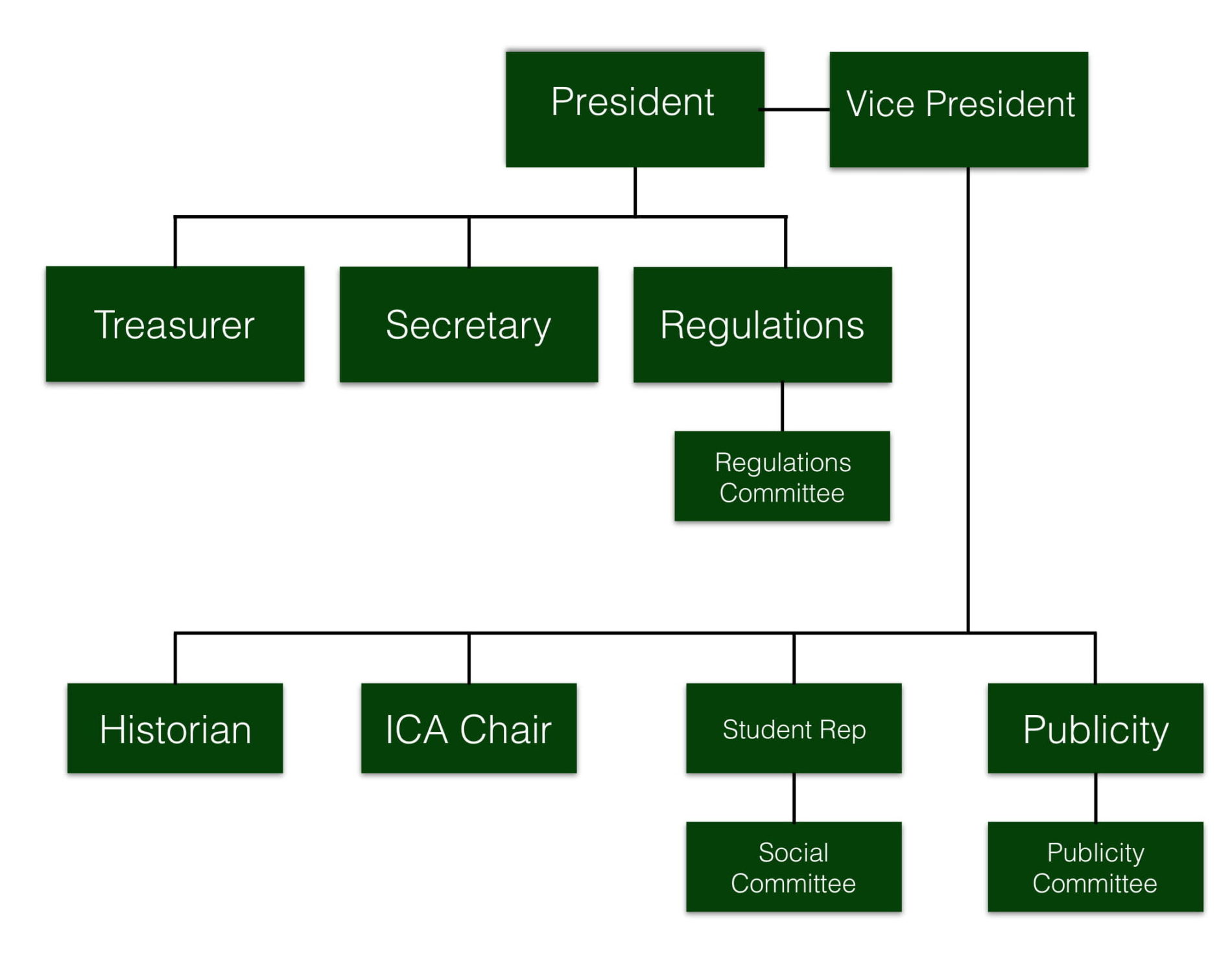What is the Funds Allotment Council?
Our Mission
The Truman State University Funds Allotment Council is dedicated to the intellectual and social development of students and to enhancing their entertainment opportunities. The Council expresses this commitment through the financial support of activities that are organized and sponsored by chartered student organizations. The council will strive to fund a variety of activities sponsored by a variety of organizations that will provide potential benefit to all members of the Student Association and the larger University Community. In order to accomplish its mission, the council will attempt to balance the many needs and desires that are inherent in a liberal arts and sciences learning community and provide a slate of activities that furthers the mission of Truman State University.
Structure

FAC is divided between 9 voting executive members and non-voting affiliate members. Each of the nine executive members has unique roles on the Council. Below is a description of each position and a few of their key roles (a complete list of executive responsibilities can be found in Article III of the FAC By-Laws).
- President: The overall face for FAC, the President runs the meetings and communicates with the advisor as well as being the go-to for all questions had by FAC members.
- Vice President: Runs the meeting in the absence of the president, organizes new member education, and communicates with the U&I for room reservations.
- Treasurer: Keeps track of what money is being spent, updates the slate, and communicates with the business office in regards to turning in FRFs.
- Regulations: Ensures that the By-Laws and Constitution are being followed and explores the possibility of sanctioning when necessary.
- Secretary: Takes all meeting minutes, organizes all interview times and communicates with the Council about upcoming dates and attendance.
- ICA Chair: Oversees the FAC storage closet check-out process, collects travel forms from ICA groups, and ensures completion of the Clery Form.
- Historian: Organizes end of the semester evaluations for groups and FAC members and compiles all information for future use.
- Student Representative: Runs the Funding Information meetings and is in charge of apparel for the council.
- Publicity: Keeps the website up-to-date and publicizes FAC applications through the use of social media, on-campus posters, and whatever other means deemed necessary.
Procedures
Voting
Voting on the council happens for re-allotments, new member additions, deliberations, sanctioning, and any other motion that is made by a member of the Council. Anyone on the Council can make a motion to vote and an executive member must second this motion to vote. If a motion is not seconded, then the motion to vote dies on the floor. Affiliate members can choose to verbally “support” or “not support” a motion to vote, but this is not required. Only executive members are allowed to vote on motions, with a 2/3 majority vote typically required for a vote to pass. An executive member may abstain from a vote if they have a conflict of interest.
Funding Hearings
Hearings serve as a way for organizations to present their funding requests and give the Council more information about their event. Some tips for a good hearing are:
- Come prepared with a specific idea and a breakdown of your organization’s expected expenses.
- Make sure you are familiar with the information in your application as the Council frequently asks for clarification during hearings.
- If your organization is hosting an event, do your best to come prepared with a date, time, and location. FAC suggests that your organization request a location through the U&I room lottery prior to your hearing, as this helps show FAC that your organization is prepared.
- Discuss the merits of your event and how it will benefit Truman students.
Deliberations
After funding hearings have been completed, FAC then moves on to deliberations, a process that typically lasts for upwards of 6 hours. During deliberations, FAC decides how to divide the following semesters’ funding among the organizations that have applied. This process often involves many tough decisions and all votes and discussions are strictly confidential. Once the Council has reached a consensus on how to divide funding, a 2/3 executive vote is required to pass the slate. The finished slate is then published on the FAC website within a week of deliberations and groups are notified of their funding status.
Grievance Process
If an organization believes that FAC has committed a procedural error during the application process, organization hearing, or deliberations, or that FAC violated University policy or violated local, state, or federal law, then the organization may choose to initiate the Grievance Process. Grievances must be submitted within two weeks of the publication of the FAC slate. A procedural error is defined by FAC as a violation of the procedures stated in the FAC Constitution or By-Laws.
A full outline of the Grievance Process can be found in Article VII, Section 5 of the FAC Constitution.
Sanctions
Sanctions are applied to an organization when the organization violates FAC rules. There are many sanctionable offenses, but some of the most common include failure to spend at least 50% of allotted funds, failure to publicize adequately, or misuse of FAC funds.
A full list of sanctionable offenses can be found in Article VI of the FAC By-Laws.
If FAC believes that an organization has engaged in sanctionable conduct, the organization will be asked to attend a sanctioning hearing. During this hearing, FAC will gather information and the organization will have a chance to explain why the offense did/did not occur. Following this hearing, the Council will discuss and vote on whether sanctions are necessary. If sanctions are deemed necessary, the Council will then vote on the duration of sanctions, which can range from 1 to 4 semesters depending on the violation. If an organization has committed multiple offenses, it is up to the discretion of the Council whether their sanctions should run concurrently or consecutively.
To learn more about our rules and procedures, check out our Constitution and By-Laws below.
FAC Constitution FAC By-Laws
The Funds Allotment Council office is located in SUB 1109A, on the lower level of the Student Union Building. Members of the Council work scheduled office hours every week, which is a good time to drop by and inform your Council liaison of the progress of your group’s activity. Office hours for each liaison are posted on the FAC office door.
Please note: FAC members do their best to attend all of their scheduled office hours each week. However, FAC is a student-run organization and sometimes assignments pile up or life happens and a member is unable to make it to the office. If the office is closed at any time, please feel free to leave documents in the mailbox beside the door and/or email your liaison or the FAC account your questions, comments, or concerns.

